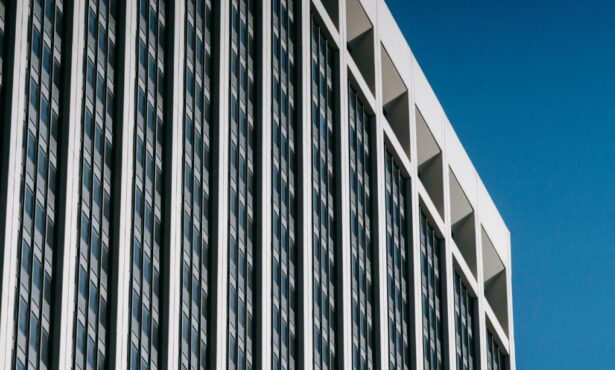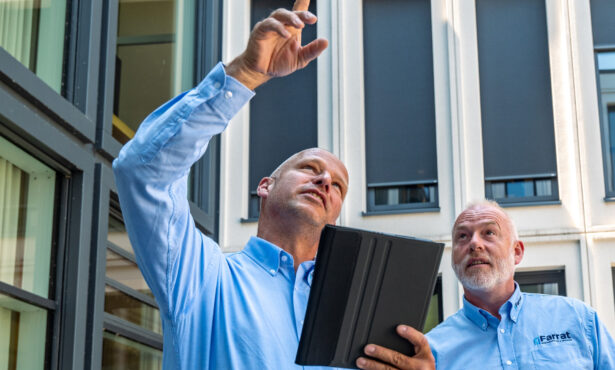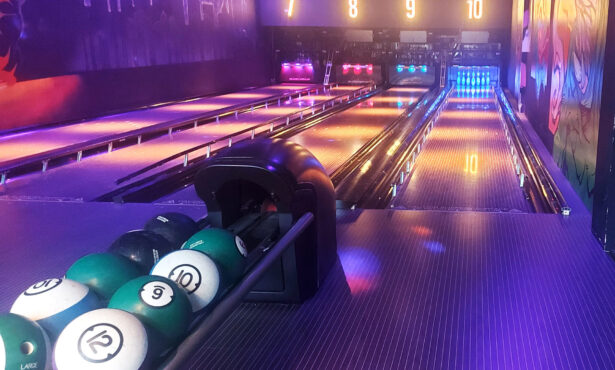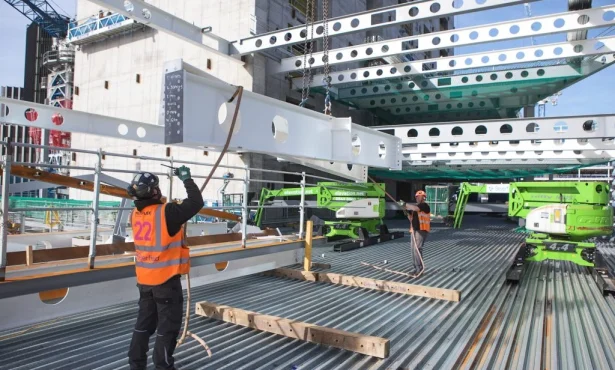Set to be the tallest building in Africa at 250-metres with 55 stories, Mohammed Tower IV is a new high-rise tower designed by Rafael de la Hoz & Hakim Benjelloun to resemble a rocket on its launch pad. The striking development will be visible from 50km in all directions and forms the centre piece in the Bouregreg Valley Development Project, which plays a leading role in the development programme for Rabat, ‘the City of Light,’ in the Moroccan Capital of Culture. Once complete, the project will provide a luxury hotel, commercial offices, high-end residential apartments, and a viewing sky terrace.
The Challenge
Sustainability and energy efficiency are both primary design considerations in this project, with the client aiming to achieve LEED Gold and HQE quality standards. LEED certification provides an independent guarantee of a building’s green features, with a LEED Gold rating representing first-class leadership in resource-efficient building design, construction, operations, and maintenance.
Farrat were contacted via our export partner in the GCC region, UniGroup, to supply a high-performance, robust, and certified fire-resistant thermal break solution to mitigate against thermal bridging across façade connections for contemporary facade design company Glassline Abu Dhabi. Farrat Structural Thermal Breaks are favoured across the construction industry, as the most efficient & responsible way to thermally separate structural connections and prevent heat loss in the building envelope.
The thermal breaks would form part of a wider sustainable construction program, alongside smart energy efficiency systems such as 3350 m² of photovoltaic solar panels on the South façade, rainwater recovery and wastewater recycling systems and an internal energy recovery system to produce hot water.
The Solution
Following a review of the connection designs, Farrat TBF was selected as the optimal structural thermal break material for extensive use across the façade connections of Mohammed Tower, to prevent heat transfer through steel beams where the external building aspects meet the interior.
Farrat TBF is an A2 rated non-combustible structural thermal break material capable of maintaining superior structural performance at temperatures more than 1000°C. Farrat TBF also provides high-level thermal performance to solve structural thermal bridge issues and exceeds all current fire regulatory requirements for buildings above (and below) 18m.
Following several high-rise fire tragedies across the globe, increasing numbers of building designers are looking to go beyond the standard when it comes to fire safety.
The Design
The inherent non-combustible composition of Farrat TBF was the solution to the fire element of the design, allowing unrestricted use in the high-rise construction. Use of the material’s remarkably high compressive force resistance allowed Farrat to assess the transmission of loads through the structural connection, sufficient to maintain performance under influence from weather stresses.
The Outcome
“In designing and securing this high-performance project, Farrat utilised the full extent of our material research & development skills and harnessed our extensive experience of thermal bridging projects in all climates and circumstances around the globe,” states Chris Lister, Commercial Manager of Structural Thermal Breaks at Farrat.
“The resulting construction details are to the highest levels of structural and fire safety performance whilst also being beautiful in their simplicity.”Structural Thermal Breaks with Farrat
Farrat Structural Thermal Breaks are favored across the construction industry, as the most efficient & responsible way to thermally separate structural connections and prevent heat loss in the building envelope. For more information on using thermal breaks in steel construction, visit our thermal break hub.
#onamission







